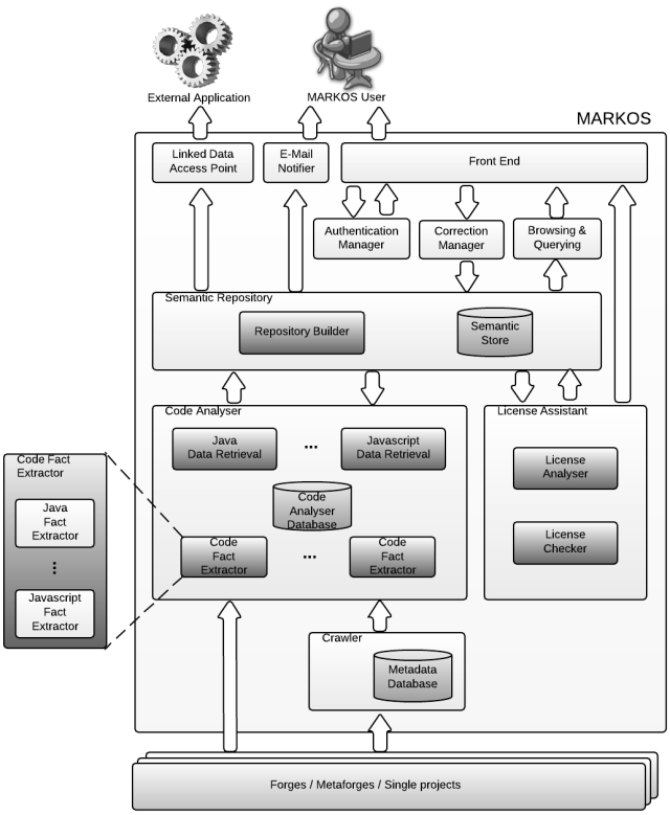The argument graph constructed from the knowledge base and facts is mapped to a Dung abstract argumentation framework, in a manner similar to ASPIC+, and evaluated using grounded semantics. This applies a new formal model of argument graphs (to be published) which generalizes the original Carneades model [3] to handle cycles, while retaining the support of the original model for proof burdens and standards. The labeled argument graph is visualized using an interactive web application. The application provides multiple linked views onto the argument graph, including hypertext, out-lines and argument maps. A collaborative argument graph editor is provided, with forms to help users to apply argumentation schemes to enter further arguments which were not constructed automatically from the knowledge base, or to modify arguments if they disagree with the interpretation of copyright law modeled in the knowledge base. Argument graphs are persistently stored in relational databases and can be shared, to support collaboration by allowing others to access, view and edit the argument graphs.
1.
References ^
[1] Gabriele Bavota, Alicja Ciemniewska, Ilknur Chulani, Antonio De Nigro, Massimiliano Di Penta, Davide Galletti, Roberto Galoppini, Thomas F. Gordon, Pawel Kedziora, Ilaria Lener, Francesco Torelli, Roberto Pratola, Juliusz Pukacki, Yacine Rebahi, and Sergio Garca Villalonga. The MARKet for Open Source: An intelligent virtual open source marketplace. In IEEE CSMR-WCRE 2014 Software Evolution Week (CSMR-WCRE), 2014.
[2] Thomas F. Gordon. Analyzing Open Source License Compatibility Issues with Carneades. In Proceedings of the Thirteenth International Conference on Artificial Intelligence and Law (ICAIL-2011), pages 55–55. ACM Press, 2011.
[3] Thomas F. Gordon, Henry Prakken, and Douglas Walton. The Carneades Model of Argument and Burden of Proof. Artificial Intelligence, 171(10-11):875–896, 2007.
Thomas F. Gordon, Fraunhofer-Institut für Offene Kommunikationssysteme FOKUS, Kaiserin-Augusta-Allee 31, 10589 Berlin, thomas.gordon@fokus.fraunhofer.de; http://www.tfgordon.de/






